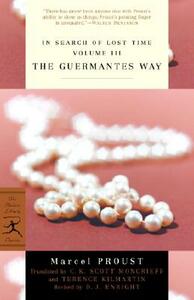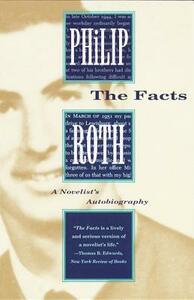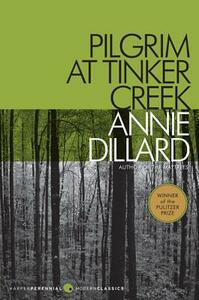Take a photo of a barcode or cover
kevin_macdonell's Reviews (81)
Larson uses contemporary examples to illustrate his definition of memoir as distinct from fiction, autobiography, and all the shades in between. Naturally his purview is limited to what was published up to 2007 or so, a key limitation for a genre still fluid in its development.
Larson offers plenty to agree or disagree with; I found myself mostly agreeing. For me, it helped that he sees memoir through his personal lens of the author describing their own search for an authentic self, which may or may not be found. I can relate.
I especially appreciated his warnings about the danger in emulating the narrative drive of fiction. Memoir writers don’t need to bend that way. Larson prefers “more intelligent doubt than narrative certainty.” This might mean honest confusion in place of a ripping story. In short, the truth. And by “truth” he means true to memory, not necessarily documentary truth. The honest journey is the point. The memoirist writes themselves through the struggle with memory.
Rounded out with some thoughts on the potential value of memoir to society, this makes a worthy addition to the writer’s shelf. The end notes include a useful list of other works of interest.
Larson offers plenty to agree or disagree with; I found myself mostly agreeing. For me, it helped that he sees memoir through his personal lens of the author describing their own search for an authentic self, which may or may not be found. I can relate.
I especially appreciated his warnings about the danger in emulating the narrative drive of fiction. Memoir writers don’t need to bend that way. Larson prefers “more intelligent doubt than narrative certainty.” This might mean honest confusion in place of a ripping story. In short, the truth. And by “truth” he means true to memory, not necessarily documentary truth. The honest journey is the point. The memoirist writes themselves through the struggle with memory.
Rounded out with some thoughts on the potential value of memoir to society, this makes a worthy addition to the writer’s shelf. The end notes include a useful list of other works of interest.
It took me more than a hundred pages to warm to this book. If I’m going to give up, it’s usually after only fifty pages — so something kept me going. In the early pages, I grasped at shapes in a fog, but after the middle the writing became more concrete, honest, and urgent. Whether the book got better, or whether I simply began to track with it, learning its dance, I don’t really know. I also don’t know if I learned a great deal about “what it means to write,” but through its examination of a host of metaphors for creativity, the book did spark many ideas.
I’ve read only two or three novels of Roth’s, from Portnoy to Human Stain, and that’s over many years, so I am uncertain how this book stands in relation to them. Such spiky, pugnacious sentences. My impression from The Facts is that I might not have liked Roth if I met him, which anyway would be irrelevant where literature is concerned — but I would have been entertained.
I live in Nova Scotia, but I would love this collection regardless. “The U.S.A. School of Writing” is brilliant.
Here are two Mi’kmaq legends, in various scripts and translations, ironically saved through the actions of a late-stage colonizer of the mid- to late-1800s who would have been as happy to have replaced the legends with Christian, specifically Baptist, belief.
They were “lost,” but they have changed forms, like anything that is very much alive. We can suspect that English isn’t up to the task of conveying the sense, let alone the rhythm, of these stories. But I like that the modern-day translations are as literal as possible, without conjectural glosses like the bridgings we’re forced to add when relating a dream. Here I would advise fellow readers to slow down and enter the dream.
How should we listen to these legends today? Peter Sanger, whose essays accompany the translations, says it’s not about suspending disbelief but about discerning underlying truth.
Legend and myth, like all “complexly principled art,” he says, is not for those “whose minds habitually simplify in order to avoid having to try to understand the ambiguities of existence.” Rather, legend and myth are made to be listened to by those who know that “the differences between foolishness and wisdom, between the childish and the mature, between animals and humans, between the present and the past and the present and the future are illusory.”
This is brilliant, suggesting perhaps a correspondence between Mi’kmaq literature and other world teachings in non-duality. In the matter of belief, he says, the true distinctions are not between real and unreal, but between the “archetypically profound and coherent” versus what is “anecdotal and spiritually truncated.”
We moderns may have tossed out the mythic baby with the religious bathwater, to my mind, but that does not mean we live without myth, or that we even can. We always risk impoverishment in choosing poorly, or in imagining that we do not choose at all — thus unknowingly living out the sometimes destructive myths that are currently dominant.
They were “lost,” but they have changed forms, like anything that is very much alive. We can suspect that English isn’t up to the task of conveying the sense, let alone the rhythm, of these stories. But I like that the modern-day translations are as literal as possible, without conjectural glosses like the bridgings we’re forced to add when relating a dream. Here I would advise fellow readers to slow down and enter the dream.
How should we listen to these legends today? Peter Sanger, whose essays accompany the translations, says it’s not about suspending disbelief but about discerning underlying truth.
Legend and myth, like all “complexly principled art,” he says, is not for those “whose minds habitually simplify in order to avoid having to try to understand the ambiguities of existence.” Rather, legend and myth are made to be listened to by those who know that “the differences between foolishness and wisdom, between the childish and the mature, between animals and humans, between the present and the past and the present and the future are illusory.”
This is brilliant, suggesting perhaps a correspondence between Mi’kmaq literature and other world teachings in non-duality. In the matter of belief, he says, the true distinctions are not between real and unreal, but between the “archetypically profound and coherent” versus what is “anecdotal and spiritually truncated.”
We moderns may have tossed out the mythic baby with the religious bathwater, to my mind, but that does not mean we live without myth, or that we even can. We always risk impoverishment in choosing poorly, or in imagining that we do not choose at all — thus unknowingly living out the sometimes destructive myths that are currently dominant.









